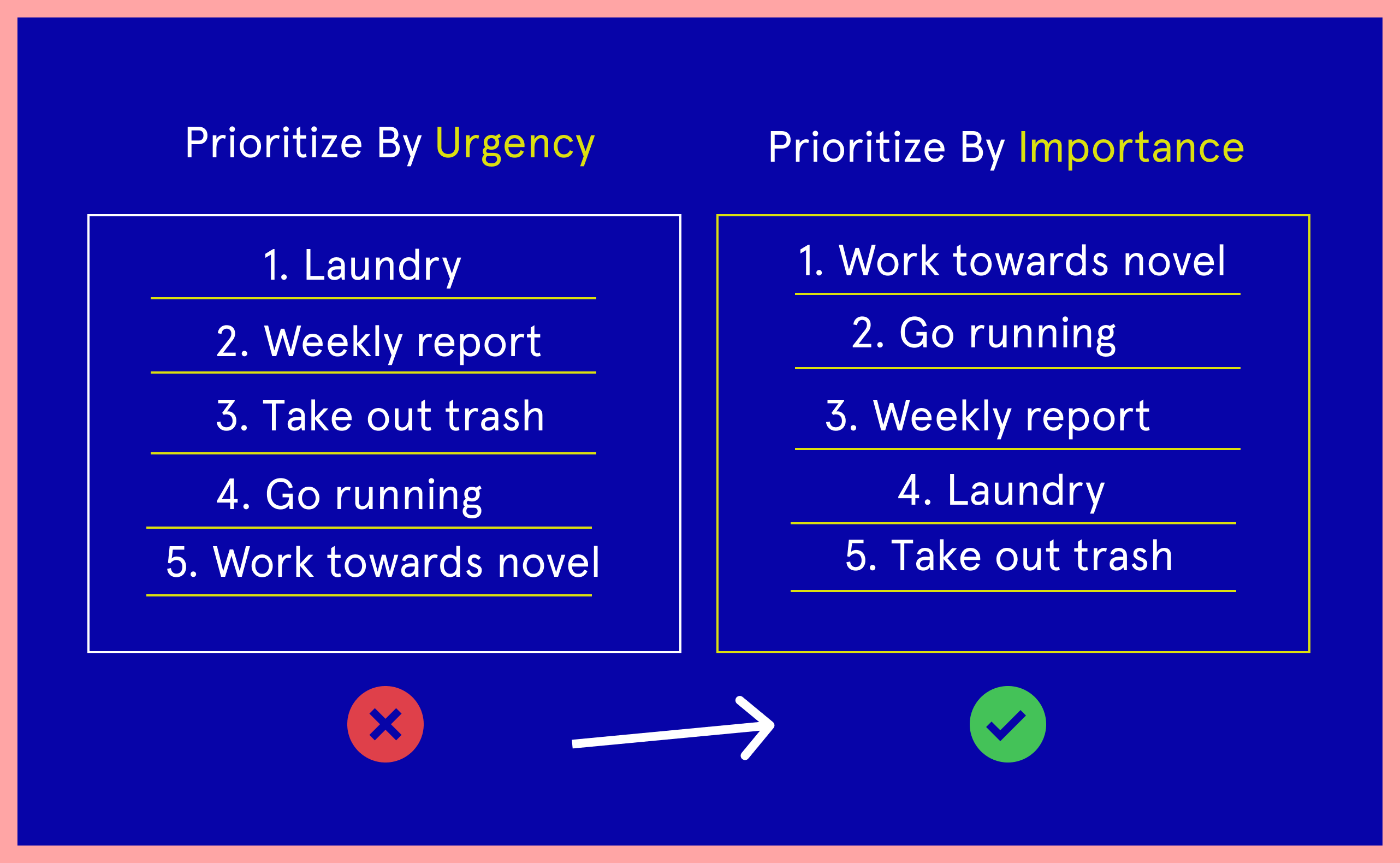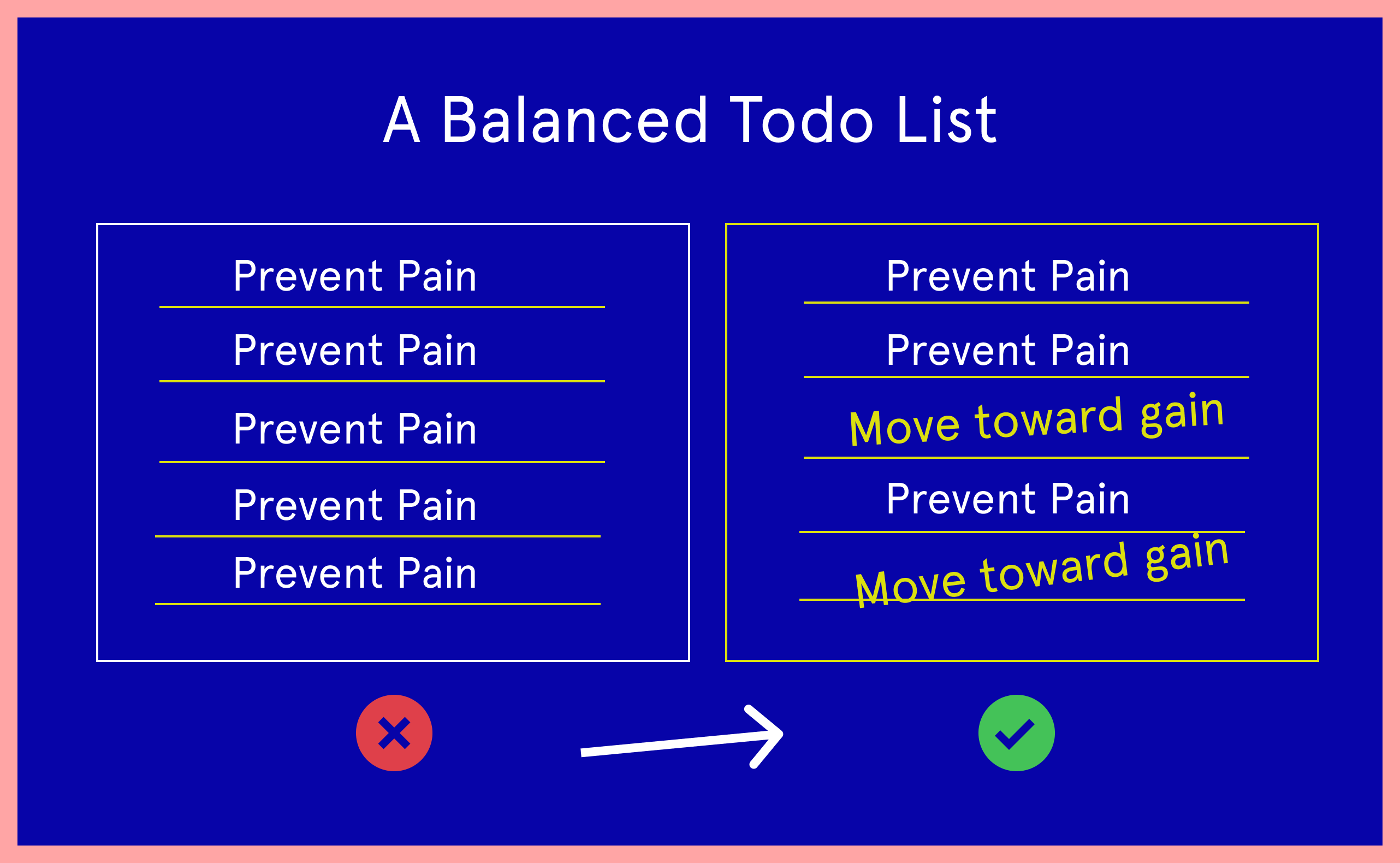I’ve never been big into optimizing my productivity.
Nowadays it seems like there’s a huge amount of productivity software out there, like Notion, Trello, Airtable, Evernote, etc, and I find it really hard to differentiate between any of them. Possibly because I just don’t find any that compelling.
I normally tend to just create a todo list on the native notes app on my Mac or even on a piece of paper, and then work my way down that.
With that said, there is one concept I learnt from the book Decide: Work Smarter, Reduce your Stress, and Lead By Example by Steve McClatchy a few years ago that I found extremely helpful.
It struck out to me because it added context to my daily tasks.
Often, we assign an equal weighting to everything on a todo list. This inevitably leads us to prioritize tasks by their level of urgency, rather than by the actual results they might drive.

Prioritizing by urgency is a sign of short term thinking, whereas prioritizing by the level of gain a task might drive is a sign of long term thinking.
The concept I read about divides tasks up into three categories: A, B, and C.
Tasks are filtered into each category on the basis of the results that they drive and nothing else.
Category A tasks are tasks that produce significant results and have the potential to change your life. These are the tasks that you will remember at the end of your career.
Category B and C tasks are both tasks that someone will bring to your attention if you don’t do them. The difference between B and C tasks is that a B task is documented - it must be done on time and completed to a satisfactory condition (for example, handing in a report at work).
In contrast, no one is keeping track of how well you complete a C task. Examples here include doing your laundry or taking the trash out.
There’s no way to completely eliminate B and C tasks from your life. McClatchy refers to these as Prevent Pain tasks because even though you won’t remember them at the end of your life, not doing them will actively harm you. Unless you’re fine with dirty laundry.
The above division of tasks really had an impact on me because I realized that I was measuring my productivity all wrong.
Instead of focusing on getting the maximum number of things done per day, I realized that I needed to instead work on the right things.
The things that actually mattered to me.
What tends to happen in life is that our Category A tasks get lumped to the bottom of our todo list. This makes sense - McClatchy states that a Category A is never urgent.
You don’t actually have to do any of your Category A tasks. There’s no deadline and most people don’t do them because it requires thinking outside the confines of your day to day.
What I’ve also noticed, however, is that my general day-to-day mood and life satisfaction is directly proportional to the amount of Category A tasks that I have on my calendar.

Whenever I catch myself saying that I don’t have the time to do a Category A task, I know that it’s time to really reflect on my priorities. This is what led me to changing majors in college and also picking up web development over the last year.
If you don’t complete the obligations that your Prevent Pain tasks bring, then you’ll suffer negative consequences.
But at the same time, if you fail to ever carve out the time needed to aggressively tackle your Category A tasks, then you’re never going to move forward. And too much stand still leads to burnout.
The last thing I want to mention is that Category A tasks energize us and Category B / C tasks drain us.
Waking up two hours early to write may cost you some sleep, but because the activity is something you actually want to do, your energy levels will actually rise.
This is something that people also notice with physical activity - I’ve found that 1 hour of running can make up for 1 hour of lost sleep.
The point here is that tackling Category A tasks will require commitment and effort. But don’t underestimate the fact that these are things you actually want to do.
These are the tasks that you will look back on and be proud of. So don’t let the lack of a deadline fool you from never taking any action towards them.
Decide: Work Smarter, Reduce your Stress, and Lead By Example by Steve McClatchy is the book that this article is based on. I highly recommend it.
If you enjoyed reading this article, I’d appreciate it if you signed up for my mailing list down below. Just one email every Monday containing my latest article.
Cheers,
Shikhar
Some people call it a newsletter - I call it a good time. I write about tech careers and how you can get ahead in yours. It’s my best content (like this case study) delivered to you once a week.